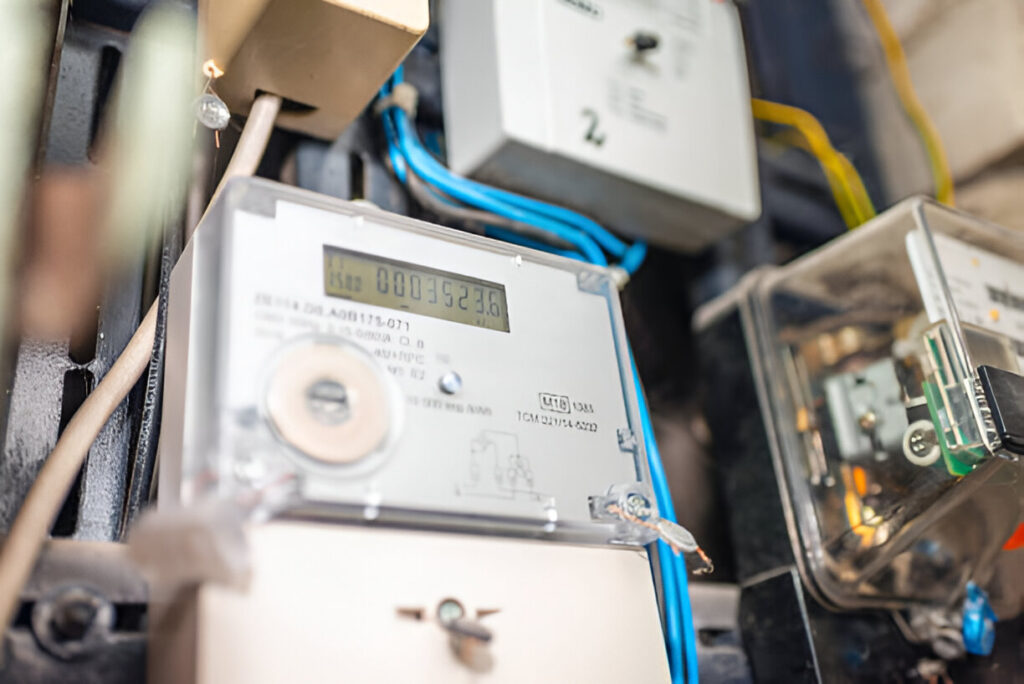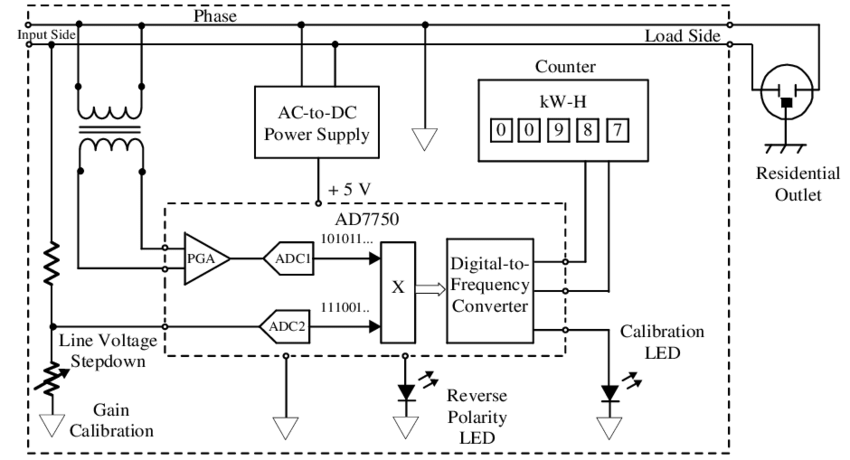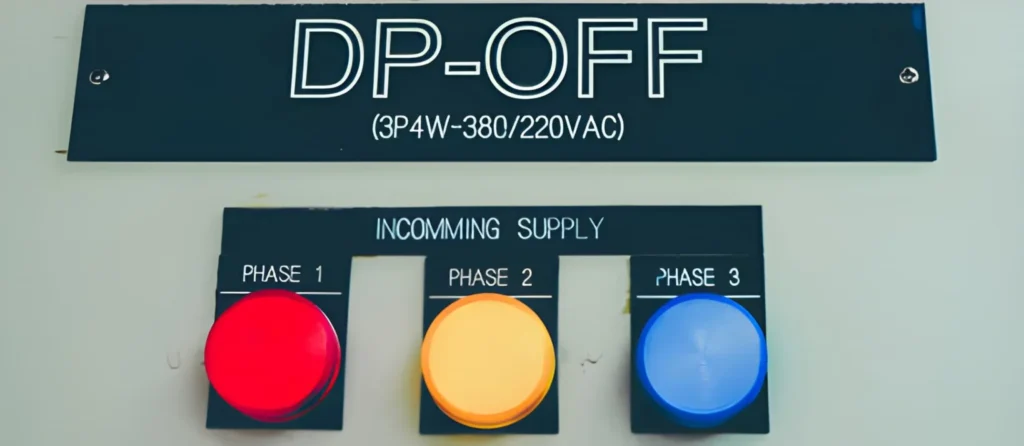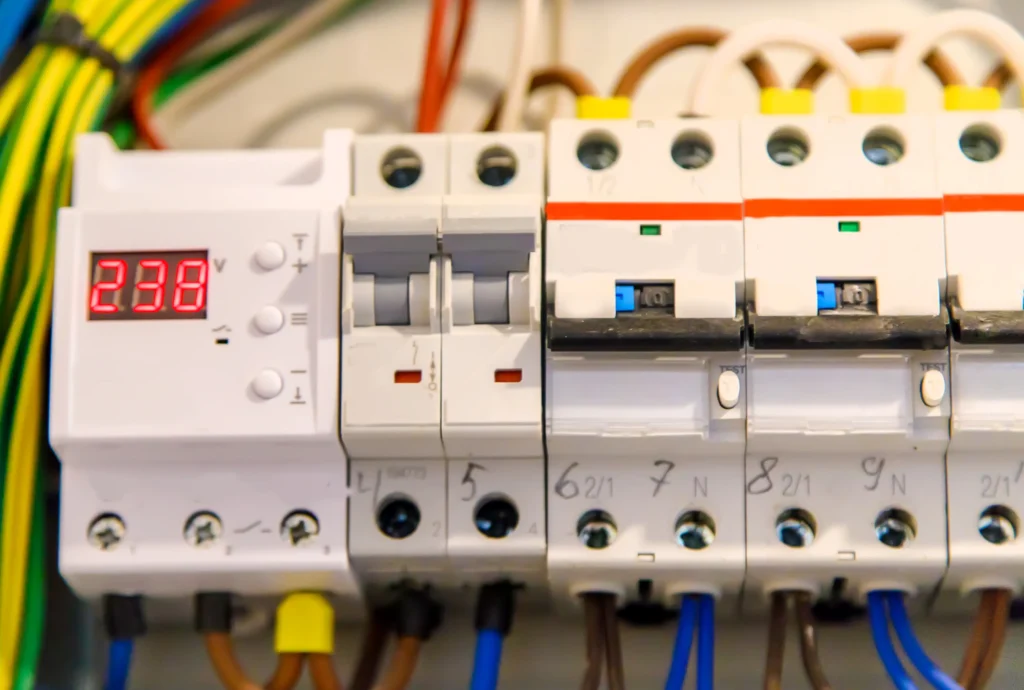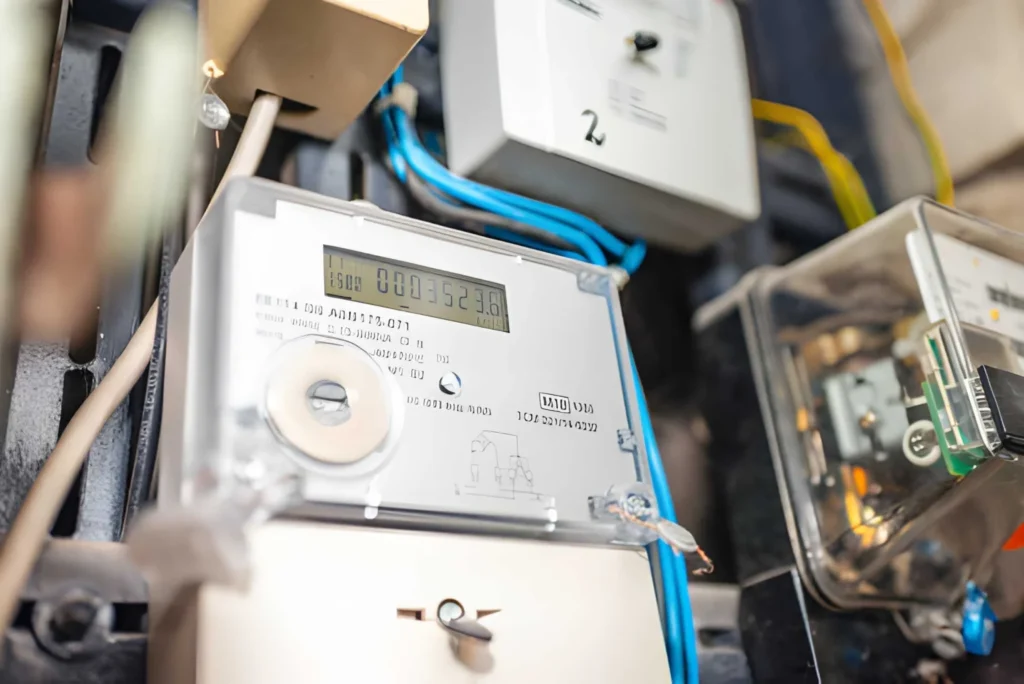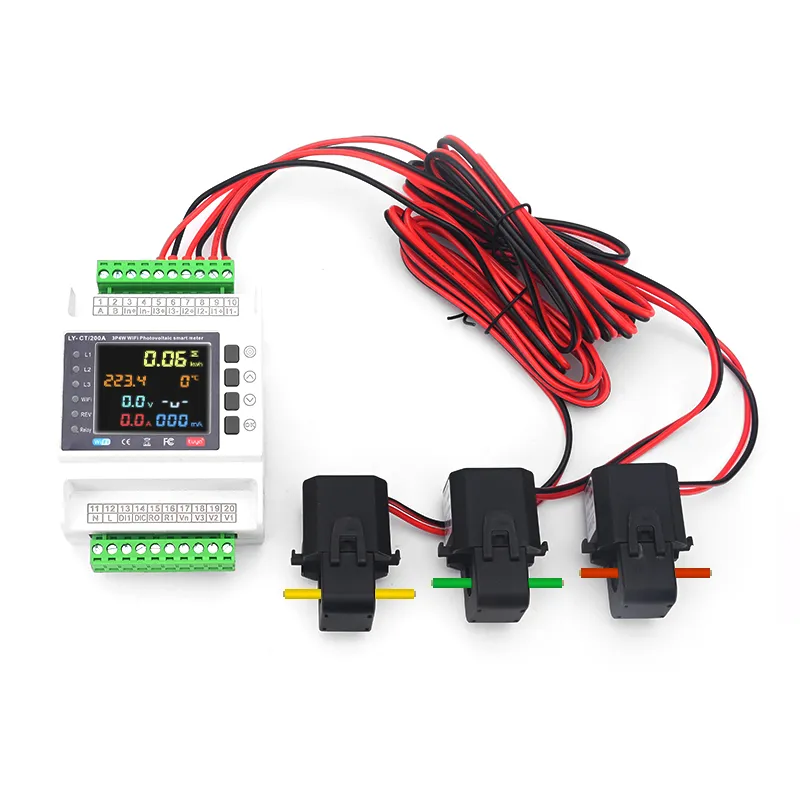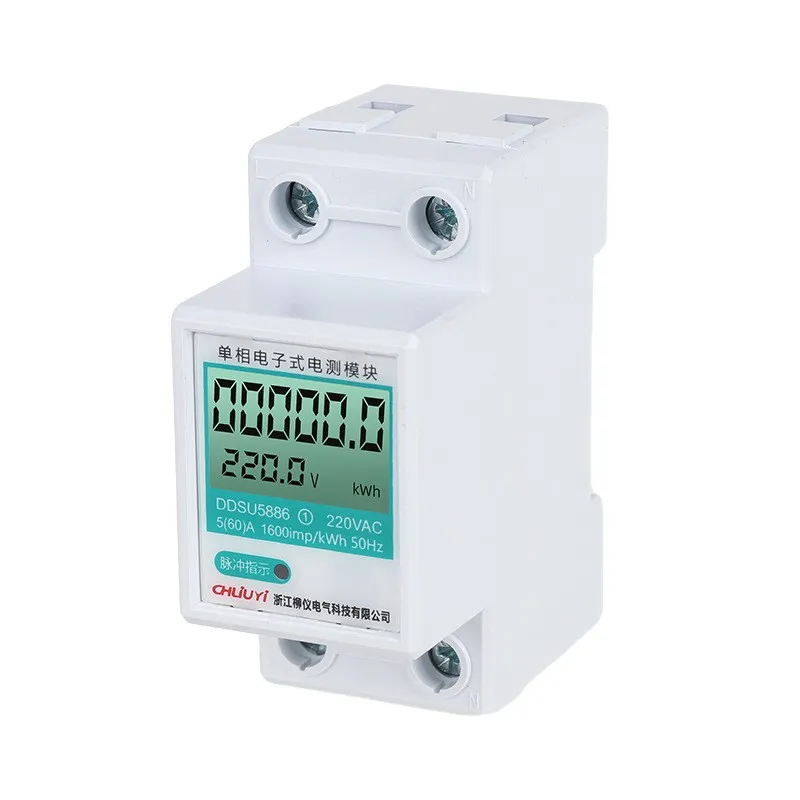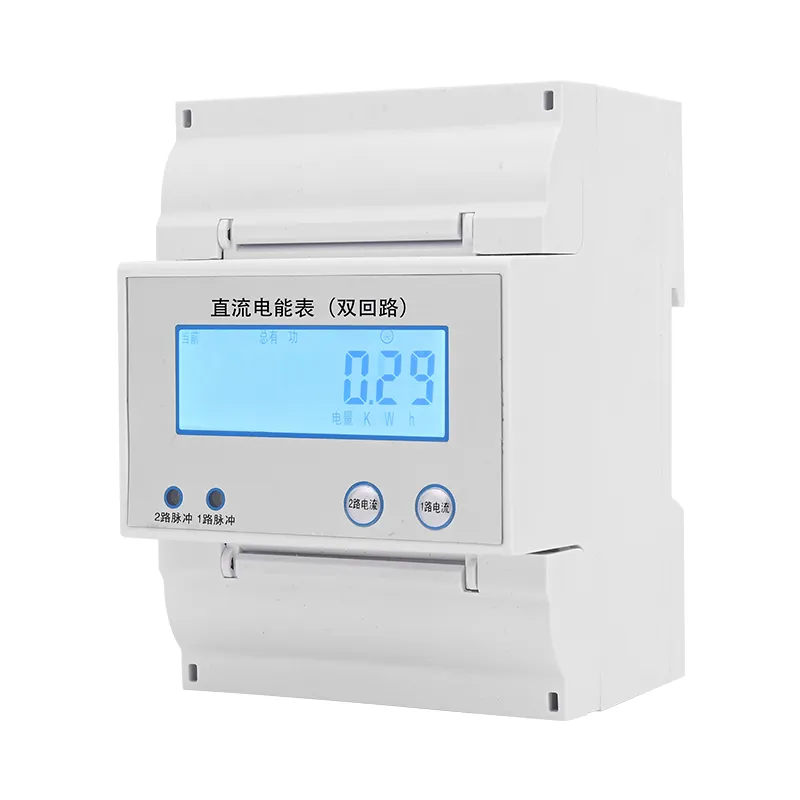Energy Meter
An energy meter measures and records the total amount of electrical energy used by a circuit or device over a set period. It is commonly found in homes, businesses, and factories to track electricity use accurately. Energy meters are important for billing and help people keep an eye on how much energy they are using.
Power Meter
A power meter, on the other hand, measures the rate at which electrical power is being consumed or delivered, usually in real time. This device provides instant information about how much power a circuit or appliance is using at any moment. Power meters are useful for monitoring the performance of electrical systems and can help spot problems with power quality.
Differences between Energy Meters and Power Meters
Measurement Focus
Energy meters are designed to measure the total amount of energy used over a certain period, usually shown in kilowatt-hours (kWh). This information is important for tracking overall energy use and is essential for billing.
Power meters, in contrast, focus on measuring how quickly energy is being used at any moment, typically in watts (W) or kilowatts (kW). They provide real-time data, giving users immediate feedback about their current power usage. This helps users better understand and control their power consumption as it happens.
Billing vs. Monitoring
Energy meters are mainly used for billing. Utility companies rely on them to calculate how much electricity each customer has used during a billing period. They also help individuals keep track of their energy spending.
Power meters are more focused on monitoring. They help users spot issues like sudden power spikes, inefficiencies, or equipment problems by showing real-time power data. This makes it easier to maintain efficient and reliable electrical systems.
Application
Energy meters are widely used in homes, businesses, and factories to measure total energy usage and determine electricity costs.
Power meters are often used for monitoring specific equipment or circuits, helping users identify problems and optimize performance.
Similarities between Energy Meters and Power Meters
Electrical Measurement
Both energy meters and power meters are used to measure electrical values. They connect to circuits or devices to collect important data about energy use and power consumption.
Accuracy
These devices are built for precise measurement. Accurate readings are essential, whether for billing customers or checking how efficiently equipment is running.
Digital Displays
Many modern energy and power meters feature digital displays. These screens show readings in a clear, easy-to-read way, making the devices simple to use.
Importance in Energy Management
Both types of meters are important for managing energy. Energy meters help track total energy costs, while power meters support the efficient operation of electrical systems. Together, they provide the information needed to control and optimize energy use.
Conclusion
In summary, while people sometimes use the terms “energy meter” and “power meter” as if they mean the same thing, each device has its own role in electrical measurement.
Energy meters are designed to measure total energy use, which is important for billing. Power meters, on the other hand, show real-time power usage, helping users monitor and manage their systems as they operate. Both are important tools for controlling energy use and managing costs.
Understanding how these meters differ and what they have in common helps people make better choices about their electricity use. This knowledge benefits homeowners who want to lower their bills, as well as managers in factories or businesses aiming for greater efficiency.
Knowing the difference between energy meters and power meters makes it easier to reach your energy goals and explain these concepts to others with confidence.
FAQs
What is the main difference between an energy meter and a power meter?
The key difference is what they measure. An energy meter tracks the total energy used over time, showing overall usage patterns. A power meter measures how much power is being used at any given moment.
Can I use a power meter to calculate my electricity bill?
No, a power meter does not measure total energy consumption, which is needed for billing. Only an energy meter is designed to provide the information required to determine your electricity bill.
Are energy meters and power meters necessary for home use?
Energy meters are important for tracking how much electricity a home uses and for managing costs. Power meters are more commonly used in businesses or factories, where monitoring real-time power use is more critical.

